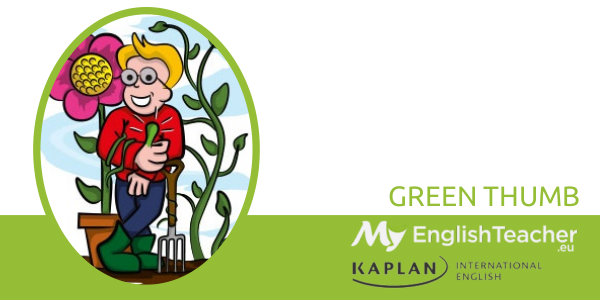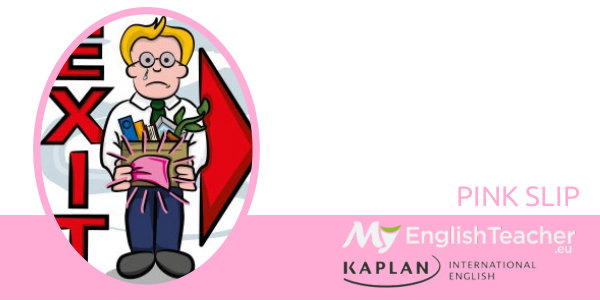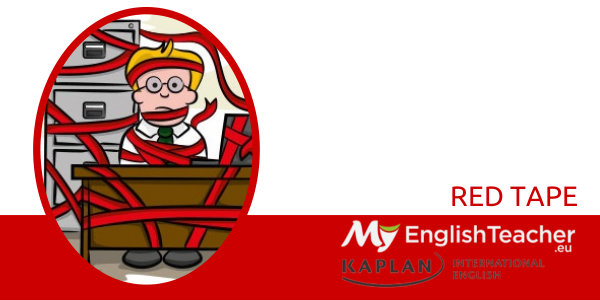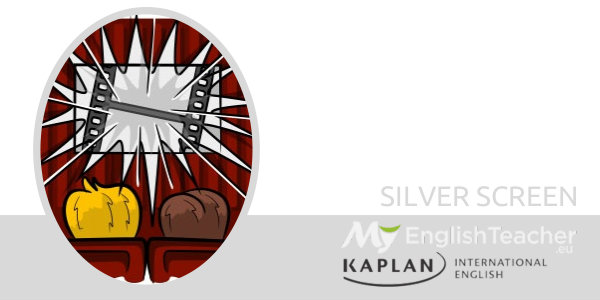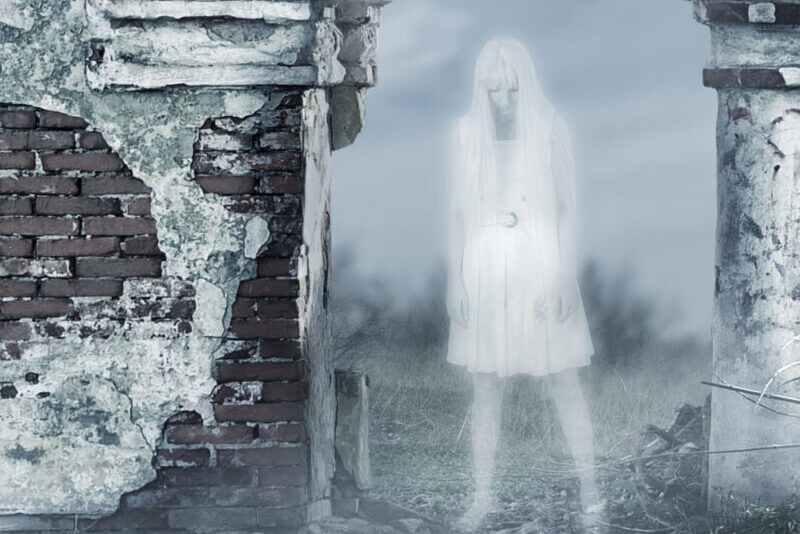Идиомы с названиями цветов – не редкость в английском языке. Знать их и употреблять в речи – прерогатива истинных ценителей языка. Предлагаю вам ознакомиться со списком цветных устойчивых выражений. Для удобства все идиомы разбиты по цветам. Попрактиковаться в употреблении идиом вы сможете, выполнив следующие упражнения.
Green
Green winter – бесснежная зима;
In the green – в расцвете сил;
To have a green thumb – быть талантливым садоводом;
The green light – разрешение;
Green with envy – завистливый;
Green-eyed monster – ревность;
To be green about the gills – побледнеть.
Red
Red with anger – побагроветь от гнева;
The Reds – индейцы;
To paint the town red – продолжать попойку;
To see red – разозлиться, прийти в ярость;
To be in the red – быть в долгах;
To be/get out of the red – расплатится с долгами;
Red herring – обманный маневр;
Red carpet – радушный прием;
To roll out the red carpet – оказать теплый прием;
Red tape – волокита, бюрократизм;
To catch smb. red-handed – поймать с поличным;
Red-letter day – праздничный день.
Ginger
A ginger group – группа активистов.
Pink
In the pink — в добром здравии;
Pink slip – уведомление об увольнении;
To see pink elephants – видеть галлюцинации, галлюцинировать;
Tickled pink –удовлетворенный, польщенный;
The pink of perfection – верх совершенства.
Rose
To see life through rose-coloured glasses – видеть жизнь в розовом цвете, быть оптимистом
White
White coffee – кофе с молоком;
White lie – безвредная ложь;
White fury – неистовство;
White night – ночь без сна;
To stand in a white sheet – публично каяться;
White horses – барашки (на море);
White-collar worker – работник офиса;
White-collar crime – должностное преступление;
White elephant – обременительное или разорительное имущество;
To show the white feather – проявить малодушие, струсить.
Blue
Blue-ribbon – исключительный, самый лучший;
Blue devils – меланхолия, тоска;
As blue as the devil – грустный, угрюмый;
Till one is blue in the face – долго и безуспешно;
To talk a blue streak – тараторить, много болтать;
Out of the blue – неожиданно;
Like a bolt out of the blue – внезапно;
Black and blue – в ушибах, синяках;
To be in a blue funk – тосковать;
To make/ turn the air blue – сквернословить, ругаться;
Once in a blue moon – очень редко;
To drink till all’s blue – допиться до белой горячки;
To blue money – транжирить деньги.
Black
The black sheep – изгой, тот, кого не любят, презирают;
A black eye – синяк под глазом;
To be in the black – быть финансово независимым, стабильным;
Black look – хмурый, недобрый взгляд;
Black and blue – в ушибах, синяках;
Black art – черная магия;
Black pudding – кровяная колбаса;
Black spot – опасное место на дороге.
Yellow
To have a yellow streak – струсить;
Yellow look – завистливый взгляд;
The yellow press – желтая пресса;
Yellow flag – карантинный флаг;
Yellow dog – подлый человек, неприятная личность, трус.
Понравилось? Сохраните на будущее и поделитесь с друзьями!
Add colour to the English language by using these wonderful idioms! Keep your fellow students guessing by using a new idiom each day!
Below is a list of idiomatic expressions related to colour:

This “Colour Idioms” image was created by Kaplan International. Click here to see the original article or to discover how you can study English abroad.
BLACK IDIOMS
1. Black and white
To take everything into consideration and oversimplify something. To judge everything as either one way or the other, good or bad.
- Our boss always thinks that everything is straightforward, but he doesn’t realise that this whole situation is not as black and white as he thinks!
2. Put something down in black and white
To write or have something written down on paper for confirmation or evidence
- I don’t understand why you don’t believe me! Look, it’s written here in black and white!
3. Black as night
Somewhere very dark, when it is hard to see anything
- We had another power cut last night; it was as black as night in our house. We didn’t even have any candles!
4. Black and blue
Used to describe something that is badly bruised
- John’s face was black and blue after the boxing match.
5. Black eye
A bruise near one’s eye
- Fred came home with a horrible black eye today, but he won’t tell us what happened!
6. Black out
This means to, either darken by putting out or dimming the lights, or to lose consciousness.
- We had a huge black out here last night, the whole town was out of power for about 7 hours!
- I don’t know what happened to him, he just blacked out! Maybe he banged his head.
7. Black as a skillet
Used to describe something that is very dirty, black with dirt
- My hands and clothes were as black as a skillet, and I was only halfway through cleaning your garage!
8. Black market
A term used for places where goods are illegally bought and sold for a profit.
- Jerry used to sell cigarettes from South America on the black market!
9. Blackball someone
To exclude or ostracise someone socially, reject them
- Their company has been blackballed ever since that scandal was all over the newspapers. No one wants to do business with them anymore.
10. Blacklist someone
To write someone’s name on a list if they break any rules, and ban them from having the opportunity to take part again
- “I was in a lot of debt a while ago, and was unable to pay it all back, so I’ve been blacklisted. I’m not allowed to get a mortgage in my own name.
11. Pot calling the kettle black (shorten version: pot kettle black)
This is used when the person who hypocritically criticises or accuses someone else is as guilty as the person he or she criticises or accuses
- She kept telling me that I shouldn’t do that, but that’s like the pot calling the kettle black, as she does it herself too!
12. Blackmail someone
To extort or take money from someone by using their secrets against them and threatening to reveal it to others
- He has been blackmailing me for months with some photos that I didn’t know he had. I need someone to help me stop him!
13. In someone’s black books
To be in disgrace or in disfavour with someone
- After that argument yesterday, I assure you he will be in a lot of people’s black books for quite some time!
14. Black tie event/affair
A formal event where male guests wear black bow ties with tuxedos or dinner jackets
- The award’s ceremony will be a black tie event, so I’ll have to buy a smart suit. My wife is going to wear her purple ball gown.
15. Black sheep
Used to describe a person who is the ‘odd one out’ of a group, and doesn’t fit in with others around them. This could also be used to talk about someone who is a disgrace or embarrassment to their group.
- I have always been the black sheep in my family, I have a completely different personality to all of them, and we don’t even look the same!
16. In the black
Meaning successful or profitable
- Their company has been in the black ever since the new CEO took over, and changed it all around!
17. Pitch black
Another term for somewhere that is very dark, and you are unable to see anything
- I was afraid to go downstairs, the whole house was pitch black, and very quiet.
Skype English Lesson with a native AMERICAN or BRITISH teacher ››
Recommended for you:
1000+ Most Popular English Idioms and Their Meanings
50 Popular English Idioms to Sound Like a Native Speaker
BLUE IDIOMS
18. Out of the blue
To appear out of nowhere without any warning, to happen quite suddenly or randomly by surprise
- You won’t believe it but Sarah called me out of the blue yesterday, and told me she’s coming to visit! How unexpected!
- Greg has decided to quit his job out of the blue, and go travelling for a year!
19. Blue pencil
To censor something, or limit the information that is shared
- The reports about how soldiers were being treated abroad had been blue-pencilled by the authorities.
20. A blue-eyed boy
A critical description of a boy or young man who is always picked for special favours by someone in a position of higher authority.
- He is such a blue-eyed boy! I don’t like that the manager always treats him as if he is special, it is not fair on the rest of us!
21. A bolt from the blue
When some unexpected bad news is received
- It was a complete bolt from the blue for us, we had no idea that they were having problems, let alone getting divorced!
22. Blue blood
Used to describe someone from a noble, aristocratic or wealthy family
- Many of the blue bloods in our town were invited to the royal wedding.
23. Blue ribbon
To be of superior quality or distinction, the best of a group
- A blue ribbon panel of experts were invited to investigate the extraordinary remains.
24. Talk a blue streak
When someone talks very much and very rapidly
- The woman in the hospital bed next to me talked a blue streak all day. I don’t where she got the energy from!
25. Feel blue
When someone looks or feels depressed or discontented
- What’s that the matter with you today? You seem really blue. Is there something you’d like to talk about?
26. Blue in the face
To try really hard to win someone’s agreement, but usually end unsuccessfully
- I kept trying to convince him that it was a good idea until I was blue in the face, but he’s so stubborn, he just kept disagreeing with me!
27. Once in a blue moon
To occur extremely rarely, or only once in a lifetime
- My sister is working in Africa, she hardly ever has the time to call us. My parents only hear from her once in a blue moon.
28. Men/boys in blue
Used to describe the police, because of the colour of their uniforms
- I saw the boys in blue outside our neighbour’s house last night. I hope everything is okay.
29. Blue collar
Used to describe men used as labourers, or factory workers
- The got rid of a lot of the blue-collar workers during the recession. I would say they definitely suffered the most.
Check your Grammar ››
Recommended for you:
AT THE DOCTOR Dialogues and Vocabulary List
Hilarious Homophones. 50 Stupid Writing Mistakes to Avoid
BROWN IDIOMS
30. Browned off
To be bored or annoyed with someone or something
- I’m always browned off when he comes to visit. He doesn’t like doing anything, and he hardly ever talks to anyone!
COLOURLESS IDIOMS
31. To be colourless
Used to describe someone who lacks personality, and is really boring
- It’s really hard to make conversation with her. She’s just really dull and colourless.
32. Off colour
When someone is not feeling their best, quite ill or uneasy
- He’s been really off colour for the past few days, I think I might have to take him to the doctor.
33. To give/lend colour to
To help make a story or an explanation more credible and easier to believe, or accompany something
- The broken window and missing items lent colour to her story that someone had robbed her house.
- The music in the play helped to lend colour to the performance of the actors.
34. Sail under false colours
To pretend to be something that one is not
- Our team leader seems to be sailing under false colours, I don’t think he really understands what he’s supposed to be doing!”
35. Local colour
Used to describe the traditional features of a place that give it its own character
- The weekend vegetable market added much local colour to the small town.
36. A highly coloured report
Refers to a report that is exaggerated or has a biased view
- The highly coloured burglary report had to be rewritten when they found out that the police officer who wrote it was a relative of the family.
37. See someone’s true colours
To understand someone’s actual character, often for the first time
- I thought I knew her so well, but it was only until I asked her for the money she owed me that I saw her true colours.
39. See the colour of someone’s money
To prove that someone has enough money for something
- The antiques dealer wouldn’t let me touch the items I’d agreed to purchase, until he saw the colour of my money.
40. Chase rainbows
When someone tries to get or achieve something that is difficult or impossible
- My brother doesn’t think realistically. He’ll never get a decent job if he just chases rainbows all the time.
41. To show one’s true colours
To reveal one’s true nature
- When he got so angry at her in front of everybody, he showed his true colours.
42. With flying colours
To complete something with great distinction, and excellent results
- I didn’t think she would do so well in the final exam, but she passed it with flying colours!
43. Dyed-in-the-wool
Used to describe someone or something that is permanent (like wool that is dyed a certain colour)
- My father has always been a dyed-in-the-wool conservative, and I know he will never change.
44. To paint in bright/dark colours
To describe something in a flattering (bright) or unflattering (dark) way
- John was struggling financially after moving home, but he painted everything in the brightest colours, and made it look like he was absolutely fine!
- She only painted the venue in dark colours, because she wanted to use it for her wedding, and didn’t want me to book it for my wedding!
45. To be kept in the dark
Keeping a secret from someone, shielding the truth
- He kept everyone in the dark about the true extent of his illness.
Skype English Lesson with a native AMERICAN or BRITISH teacher ››
Recommended for you:
SHOPPING Phrases, Dialogs and Phrasal Verbs!
What’s the difference between slang and idioms?
GREEN IDIOMS
46. To be green
Used to describe someone who is immature, or inexperienced
- He can be rather green sometimes. I don’t think he’s ready to be promoted to a higher position yet.
47. Green with envy
Used to describe someone who is extremely jealous, full of envy
- When we were children, my older brother always used to get green with envy if my dad bought something for me and not for him.
48. Give someone the green light / get the green light
When someone receives, or is given, permission to go ahead with something
- We have been given the green the light by the Marketing Executive to go ahead with the new advertising campaign.
49. Grass is always greener on the other side
Used to describe a place that is far away, and better than, where you are now, or another person’s situation that is very different from your own
- He realised that the grass is always greener on the other side when he saw that his new job wasn’t perfect, and had its own problems too.
50. Green belt
An area of fields and trees around a town
- Our city has a policy of increasing the green belt around it.
51. Green thumb/green finger
Used to describe someone with a talent for gardening, having the ability to make plants grow
- This garden used to look so beautiful when my mum lived here. She definitely had a green thumb. I wish I did too!
Check your Grammar ››
Recommended for you:
English Vocabulary for IELTS Speaking Test
280 Basic English Words You Should Know
GREY IDIOMS
52. A grey area
Something that is not clearly defined, and there is still debate as to whether it is ‘black or white’, neither one way or another
- Some of the current rules surrounding bedroom tax in the UK seem to be in a grey area, as many residents disagree with its determining factors.
GOLD IDIOMS
53. A golden opportunity
An opportunity that may never present itself again
- Think carefully about what you’re going to do, this is a golden opportunity, and you don’t want to mess it up!
54. A golden handshake
A large sum of money that is paid to a retiring manager or director, or to a redundant worker
- The company Chairman received a huge golden handshake when he retired.
55. Golden boy
The term given to a young man idolised for a great skill, usually in sport.
- By many of his fans, Wayne Rooney is seen as the golden boy of his football team.
Skype English Lesson with a native AMERICAN or BRITISH teacher ››
Recommended for you:
ESL Apps: 15 English Language Learning Apps for iPhone
Essential Academic Writing Examples and Phrases!
PINK IDIOMS
56. Tickled pink
To be very pleased, thrilled or delighted about something
- Anna was tickled pink that her fiancé had made such an effort for her birthday.
57. See pink elephants
When someone sees things that are not really there, because they are in their imagination
- Anyone who hears his story thinks he sees pink elephants. It’s just such a far-fetched story, and very hard to believe.
58. Pink Slip
A termination notice received from a job
- They gave me my pink slip last week, so I’ve got to find a new job now.
59. In the pink of something
Meaning in very good health
- My grandmother looked ever so well when I saw her, she was in the pink of condition.
Check your Grammar ››
Recommended for you:
112 Phrases for Saying Thank You in Any Situation
15 Business English Idioms and Phrases In Use
RED IDIOMS
60. To be shown the red card
This derives from football terminology, and means to be dismissed from your job
- The company Accountant was shown the red card, after they found out he was using company money for personal gain.
61. To be in the red
To have an overdraft, be in debt to your bank, or owe an institution some money
- I’ve got three credit card bills to pay off at the moment. I hate being in the red!
62. To be out of the red
To be out of debt
- Our company is finally out of the red now. We’ve managed to pay back our loan, and now we’re making profit!
63. A red flag
A signal that something is not working properly or correctly
- The fallen trees along the road raised a red flag for the safety inspectors.
64. Blood red
Used to describe the deep red colour of something
- She was wearing a beautiful cocktail dress with blood red lipstick to match.
65. Beet red
Also used to describe dark red, usually the colour of a face (derives from beetroot)
- I could see my son up on the stage, his little face was beet red!
66. Red hot
Something new and exciting, creating much demand
- The new video game is red-hot. Some fans have been waiting outside stores for days, to get a hold of them!
67. Red herring
An unimportant matter that misleads everyone and draws attention away from the main subject
- Unfortunately that witness was just a red herring. She had no justification to her story, and it was a waste of valuable time.
68. Catch someone red-handed
To catch someone in the act of committing a crime, or doing something wrong that they shouldn’t be doing
- He kept lying to me about where he was going in the evenings, so yesterday I followed him and caught him red-handed. He was with another woman!
69. Red in the face
To become embarrassed
- I went red in the face when the teacher told me off in front of everyone for arriving late!
70. Red-eye
A journey that leaves late at night and arrives early in the morning
- We had to catch the red-eye flight last night, and I’m completely exhausted now.
71. Red-letter day
A day that is memorable because of some important event
- The day I graduated was a red-letter day for my mum, she still talks about it today!
72. To look through rose-coloured/tinted spectacles/glasses
When someone sees things in an overly flattering or over-optimistic light
- Sarah doesn’t understand what it’s like for us. She has always seen everything through rose-tinted glasses because her parents spoilt her so much when she was young!
73. To see red
To react with uncontrollable rage against someone or something
- John saw red when he heard someone shouting at his mother.
74. Red tape
The term used for bureaucratic delay, or excessive formalities, and attention to rules and regulations, often resulting in injustice to the ordinary citizen
- I just want to start my own business, but the amount of red tape involved is so frustrating, that it almost makes me want to give up!
75. To see the red light
To recognise approaching danger. The red light is referred to as a danger signal
- The doctor warned me for so many years that I should stop smoking, but I didn’t listen. When I had a minor heart attack last year, I saw the red light and realised that I had to quit smoking, and improve my health.
76. Paint the town red
To go out and have a really good time at a party
- I’ve managed to get a babysitter for this weekend. Let’s go and paint the town red!
77. Roll out the red carpet
To greet a person with great respect, and give them a big, warm welcome
- When Barack Obama came to visit our school, we rolled out the red carpet for him.
78. Red-carpet treatment
(Similar to the one above) To receive special or royal treatment, and be received with a big, warm welcome
- My aunt always gives us the red-carpet treatment when we go to visit her.
Skype English Lesson with a native AMERICAN or BRITISH teacher ››
Recommended for you:
Useful English Phrases For Running A Business Meeting
Formal and Informal Email Phrases Starting with Greetings
SILVER IDIOMS
79. The silver screen
A term for the cinema
- Do you fancy going to watch that movie on the silver screen tonight?
80. Born with a silver spoon in one’s mouth
Meaning born into a rich family
- I don’t think Kelly has ever had a job. She was born with a silver spoon in her mouth.
81. To be given something on a silver plate/platter
When something is offered to someone whole-heartedly (in a metaphorical sense)
- I offered my heart to him on a silver platter, and he turned it down.
WHITE IDIOMS
82. As white as a sheet
When someone is in a state of great fear or anxiety
- Harold are you alright? You’re as white as a sheet, what’s the matter?
83. Raise a white flag
This indicates that one has accepted defeat and surrenders to the other party
- There was such a heated debate going on in the conference room, they wouldn’t back down! I just raised my white flag in the end.
84. Whitewash something
To cover up or gloss over faults or wrongdoings
- The government was accused of trying to whitewash the scandal over charity pay-outs.
85. White elephant
A term used for a useless possession, something that is of no use
- My mum bought a new CD player for me, but it’s a white elephant. I don’t need it, I don’t even have any CDs!
86. White as a ghost
Used to describe someone who is very pale because of pain, fear, shock or illness
- I didn’t think the movie was that scary, but my sister was as white as a ghost!
87. A white lie
A ‘little’ or ‘harmless’ lie told in order to be polite and avoid hurting someone’s feelings, or do something that is not seriously wrong
- I just wanted to get out of work so I told my boss a little white lie, and said I had a doctor’s appointment.
88. White collar
A term used for office workers that traditionally wear white shirts with a collar.
- We have a lot of vacancies for white-collar workers at the moment, but hardly anyone is applying for them!
Skype English Lesson with a native AMERICAN or BRITISH teacher ››
Recommended for you:
Advanced English Grammar and Vocabulary Test
Order of Adjectives: Explanation + Exercises
YELLOW IDIOMS
89. Yellow-bellied
Someone who is seen as a coward or extremely timid
- There is no point in asking him what to do. He is a yellow-bellied coward, and won’t stand up for what is right!
90. A yellow streak
Someone who has cowardice in their character
- He has always had a big yellow streak running down his back, don’t expect him to change now!

By
Last updated:
October 8, 2022
Like any language learner, you’re probably aiming to sound more like a native speaker.
Learn to express yourself with color idioms for a whole rainbow of rich English vocabulary!
These idioms are used a lot, so you’ll sound more natural than ever.
Contents
- Common English Color Idioms to Liven Up Your Vocabulary
-
- White Idioms
-
- “To wave a white flag”
- “As white as a ghost”
- “To tell a white lie”
- Black Idioms
-
- “As black as coal”
- “Black and blue”
- “Black eye”
- “Black market”
- “Black sheep of the family”
- “Black tie event”
- Blue Idioms
-
- “Feel blue”
- “Blue blood”
- “Out of the blue”
- Red Idioms
-
- “Catch someone red-handed”
- “To paint the town red”
- “A red flag”
- “Red hot”
- “Red tape”
- “Roll out the red carpet”
- Green Idioms
-
- “Get the green light”
- “Green thumb”
- Why You Need to Know These Colorful Idioms
Download:
This blog post is available as a convenient and portable PDF that you
can take anywhere.
Click here to get a copy. (Download)
Common English Color Idioms to Liven Up Your Vocabulary
Idioms are expressions that cannot be taken literally (exactly). They are metaphorical. For example, if a person is “green with envy,” their bodies aren’t the color of a lizard—it’s just a phrase. It means that they’re jealous.
Here are a few of the most popular color idioms in US English:
White Idioms
“To wave a white flag”
Meaning: To show that you’ve lost (a game, challenge or war) and you give up.
Waving a white flag actually dates back to wartime. When one army was losing and they were afraid of losing more men, they waved a white piece of material in the air to show they wanted to stop fighting.
Usage: While I was arguing with my mom about the party I waved a white flag. There was no point in arguing. She wasn’t going to change her mind.
“As white as a ghost”
Meaning: To describe a person’s face being very pale (white) because they’re shocked or scared.
Usage: My friend turned as white as a ghost when she realized there was a stranger standing at her bedroom window.
“To tell a white lie”
Meaning: To tell a small lie that doesn’t hurt another person.
Usage: We had to tell our mom a white lie about the money. We couldn’t let her know we’d spent it all on chocolate.
Black Idioms
“As black as coal”
Meaning: To be very black. Coal is a small piece of carbon used to burn on fires.
Usage: There were many clouds last night and the sky was as black as coal.
“Black and blue”
Meaning: Very beaten up and bruised. Bruised is when you have dark blue or black marks on your body from hitting an object hard or being hit by another person.
Usage: After John lost the wrestling match, he was black and blue. The other guy was very strong.
“Black eye”
Meaning: When the area around your eye looks very black because it has been hit.
Usage: When Mel fell down and hit her face on her brother’s toy truck, she got a black eye.
“Black market”
Meaning: The area where illegal things such as drugs and guns are bought and sold.
Usage: People who can’t buy a gun legally with a permit usually can buy one on the black market.
“Black sheep of the family”
Meaning: A person who is different (usually in a negative way) from the rest of the other family members.
Usage: Al is the only one in his family who hasn’t gone to college. He’s the only one who doesn’t have a proper job. He’s considered the black sheep of the family.
“Black tie event”
Meaning: A formal event or party where men are expected to wear a black suit with a tie. Women are expected to wear long, formal dresses.
Usage: The Oscars is one of the world’s most famous black tie events.
Blue Idioms
“Feel blue”
Meaning: To feel sad or depressed about something.
Usage: Can you call Sally and try and make her laugh? She’s feeling blue after Mike left.
“Blue blood”
Meaning: If a person has blue blood, they come from a wealthy or royal family.
Usage: It’s no surprise he likes to go to the opera. He’s got blue blood.
“Out of the blue”
Meaning: Something happens unexpectedly (by surprise or without warning).
Usage: Mary just showed up at the house out of the blue yesterday. We thought she was still in Europe.
Red Idioms
“Catch someone red-handed”
Meaning: To catch a person doing something they were not supposed to be doing.
Usage: We caught Jake and Julia red-handed. They were hugging and kissing even though they deny it (say it’s not true).
“To paint the town red”
Meaning: To go out and have a good time partying.
Usage: Our exams are finished. Now it’s time to go out, celebrate and paint the town red.
“A red flag”
Meaning: A sign that something that is not right. A warning sign.
Usage: Even though there were red flags in the relationship, Alice ignored them. Now she’s getting a divorce.
“Red hot”
Meaning: To be in high demand, something that everybody wants.
Usage: When iPhones first entered the market, they were red hot. Shops sold them all quickly, and people had to wait to buy their new phones.
“Red tape”
Meaning: Too much formal paperwork to do something.
Usage: When people apply for a visa for another country, there’s usually a lot of red tape.
“Roll out the red carpet”
Meaning: To greet and welcome a person with a lot of respect and celebration.
This idiom comes from Hollywood! When actors and actresses turn up at a special event, they’re given special treatment, and they walk down the red carpet.
Usage: Simon is the favorite child. Every time he returns home to Australia, his parents roll out the red carpet for him.
Green Idioms
“Get the green light”
Meaning: To get the sign that it’s now okay to do something. To be given permission.
Usage: After two years of waiting, the Smith family was given the green light to build a house on their land.
(Cultural note: In many countries in the West, you have to get special building permission to build on your land. It can take a very long time sometimes.)
“The grass is always greener on the other side of the fence”
Meaning: The idea that things are always better in another place. Everything is better than a person’s current situation.
Usage: Many people still see America as the land of dreams. But what they don’t realize is that the grass isn’t always greener on the other side.
“Green thumb”
Meaning: Talent for gardening and working with plants.
Usage: My grandmother has a real green thumb. Every sunny day, she’s outside planting more flowers in her garden.
Why You Need to Know These Colorful Idioms
The key to speaking more like a native English speaker is to use and understand everyday English expressions.
There’s slang, and then there are idioms. Both are very fun ways to boost your English vocabulary and cultural knowledge.
One of the most popular themes for idioms is color.
Color is used everywhere in the world to convey (give) meaning, and it symbolizes different things in different countries. In the US, the color of death and mourning is black, while in China it’s white.
Quite often, a color is connected to a feeling or state of mind. Color is also used in expressions to brighten up our language and make it more interesting.
English is an extremely colorful language. It has many ways of expressing the same ideas, so having a diverse vocabulary is important.
The idioms above are just a few examples of our colorful language. When you begin to understand everyday idioms, you’re one step closer to sounding like a native speaker!
Download:
This blog post is available as a convenient and portable PDF that you
can take anywhere.
Click here to get a copy. (Download)
| Colour Idioms | Перевод |
| green with envy | завидовать |
| to be green | быть неопытным |
| the green light | зеленый свет (возможность беспрепятственно осуществить ч-л) |
| a green belt | зеленая зона |
| to turn purple/white with rage | побагроветь от ярости |
| blue movie | порнофильм |
| to feel blue | унывать |
| once in a blue moon | раз в сто лет, очень редко |
| out of the blue | нежданно-негаданно |
| blue-collar worker | «синий воротничок», производственный рабочий |
| to have blue blood | иметь аристократическое происхождение |
| a black sheep | паршивая овца |
| black market | черный, подпольный рынок |
| blacklist | черный список |
| black and blue | в синяках |
| in black and white | в письменной форме |
| in the black | быть в плюсе, не иметь долгов |
| black look | злобный взгляд |
| blackleg | мошенник |
| a black eye | синяк |
| red-carpet treatment | королевский прием |
| as red as a beetroot | красный как помидор |
| the red carpet | красная ковровая дорожка |
| a red herring | отвлекающий маневр |
| to see red |
прийти в бешенство |
| red light district | квартал публичных домов |
| red-letter day | праздничный день |
| red tape | бюрократия, волокита |
| to be in the red | иметь задолженность |
| to paint the town red | отрываться; гулять |
| to be caught red-handed | быть пойманным на месте преступления |
| to be yellow | трусить |
| blue-eyed boy | любимчик |
| a white-collar job | конторская должность |
| to be blue with cold | посинеть от холода |
| a white lie | ложь во спасение |
| as white as a sheet | белый как полотно |
| to look at the world through rose-tinted spectacles | смотреть на мир сквозь розовые очки |
| white wedding | свадебная церемония |
| a white elephant | подарок, который не знаешь куда девать |
| grey matter | интеллект; ум |
| with flying colours | с честью |
| to feel off colour | нездоровится |
Муниципальное
бюджетное общеобразовательное учреждение
«Гимназия
№ 1 имени Н.М. Пржевальского»
Индивидуальный итоговый проект
«Идиомы с обозначением цвета»
“Idioms
with colours”
Учебная
дисциплина английский язык
Тип
проекта информационный
Работа ученицы 9 Б класса
Жаковой Марии
Руководитель проекта
учитель английского языка
Алексеева Лариса Васильевна
Смоленск
2021
Contents
Introduction
I Origin of idioms
II. Meaning, origin and usage of idioms with a
specific colour
1. Idioms
with «green» colour
2. Idioms
with «blue»
colour
3. Idioms
with «white» colour
4. Idioms
with «red»
colour
5. Idioms
with «black»
colour
III Functions of idioms in colloquial speech
Literature
Conclusion
Supplement 1. Dictionary «Idioms with colours»
Introduction
Learning a foreign
language is essential. One of the most frequently spoken languages in the world
is, no doubt, English. It is hardly possible to cite a sphere of knowledge in
which English is not used vastly. That is why a lot of people all over the
world learn it as a foreign language and very many people acquire it as their
first language or mother tongue.
Any language is rich
in phraseological units, or idioms, that make the speech more vivid and
natural. English is not an exceptional case. Modern dictionaries say that idioms
are indivisible word-groups the meaning of which is not determined by
individual meanings of their components. Idioms exist ready-made in the
language and their structure cannot be changed without destroying their
meaning. The meaning of idioms is often based on metaphor and may have a
certain cultural colouring that reflects the worldview of the native speakers. Consequently,
many word-groups of the kind are difficult to understand if you do not know them
and some of them do not have exact correspondences in foreign languages and so
their translation is highly challenging.
The above mentioned properties
of idioms, I believe, offer sufficient evidence of the crucial importance of
studying their meaning, structure and usage. English idioms amount to thousands.
So, I chose to study only one group of them: idioms
with adjectives of colour.
I analyzed 22
idioms (4 of them were «green» idioms; 3 of them were «blue» idioms; 3 of them
were «white» idioms; 7 of them were «red» idioms and 5 of them were «black»
idioms).
Aim of the project: spotting, analyzing
and studying the origin, meaning and usage of English phraseological units
with adjectives of colour.
Project
objectives:
—
to study the notion and properties of phraseological units in the
English language;
—
to research the meaning, origin and usage of English idioms with the
adjectives ‘black’, ‘red’, ‘white’, ‘green’, ‘blue’;
—
to conduct a survey aimed at checking frequency of the said English
idioms in the speech of high school students;
—
to compile a thematic dictionary of English idioms with the adjectives
‘black’, ‘red’, ‘white’, ‘green’, ‘blue’.
Relevance of
the project:
Knowledge
and usage of idioms increase the success of communication in a foreign
language, improve understanding of texts of different functional styles and
help to make your speech similar to that of native speakers. A great
contribution to that belongs to the study of meanings and usage peculiarities of
phraseological units as well as to the systematization of the knowledge of this
lexical cluster and the ability to use lexicographic sources. So, that is why
the study of idioms and their usage in speech is relevant.
School
students need to learn and use idioms. First they carefully study them and
then start using them in speech. My school English lessons urged me to learn idioms
and to start studying their origin and their meanings, so I decided to choose
this theme as the subject matter of my project. In the course of my research I
am going to study phraseological units with adjectives of colour, conduct a
survey checking their usage frequency in the speech of high school students.
My research and my project are to result in a thematic dictionary of English
idioms with the adjectives ‘black’, ‘red’, ‘white’, ‘green’, ‘blue’.
Resources: dictionaries, books specialized in idioms and the Internet.
Survey
Results of
the survey: According to my research,
only 20% of the students use idioms when they speak English; 60% of the students
know about the existence of idioms and learn them, but do not use them in
speech; 20% of the students do not know anything about idioms and do not study
them. I think it can be explained by the difficulty of translating and
memorizing idioms. I would like to encourage the students to become interested
in idioms and to use them in speech with the help of my project, because thanks
to this, their speech will become close to that of native speakers.
Questionnaire
1)
Do you know anything about idioms?
a)
Yes, I do
b)
No, I don’t
2)
Do you use idioms in colloquial speech in
Russian?
a)
Yes, I do
b)
No, I don’t
3)
Do you use idioms in colloquial speech in
English?
a)Yes, I do
b) No, I
don’t
I. Origin of idioms
Idioms
are present in many languages, including English. The word “idiom” comes from Greek
“idioma”, which means “a feature, originality”.1 This is a stable segment
of speech inherent only in this language and not translated into other
languages. Since most idioms are used primarily in colloquial speech, and are
not typical of the written language or formal situations, we can say that
idioms make our speech vivid, figurative and colorful, close to the speech of
native speakers.
The term
“idiom” was introduced by the English linguist L.P. Smith. He wrote that the
word “idiom” is used in English to refer to the French term “idiotisme”2,
namely, to refer to the grammatical structure of combinations characteristic of
the English language, although very often the meaning of these combinations
cannot be explained from a grammatical or logical point of view. Russian
linguists stick to the term “phraseological unit”3.
Idioms
are similar to proverbs in some of their properties and functions, but unlike
them, they are not complete sentences. However, idioms can cause certain
difficulty at understanding and translating from a foreign language due to
the fact that their meaning is not normally made up of the direct meanings of
their constituents. There are no general patterns of formation of idioms, each
idiom has its own peculiar origin. Some phraseological units are introduced
into the language by writers, others can be traced to the Bible
(e.g. the salt of the earth, the sign of the times)3,
others come from French (the first step that costs, out of mind)4
and other languages as a result of loan translation. The process of birth of
any phraseological turn is a chain of accidents and in almost every case this
process is quite special.
1-https://www.britannica.com
2,3- https://engblog.ru/origins-of-idioms
4- https://www.gramota.net/materials/2/2016/6-1/24.html
II.
Meaning, origin and usage of idioms with adjectives of colour
In any language adjectives
of colour are widely used to express and show feelings and emotions. The English
language is not an exception: it is regarded as very colourful and bright and
idioms contribute to it. Using idioms in your English speech is a
considerable step to fluent English. Besides, it helps you to establish human
contacts and make friends easily.
While making my research,
I studied many idioms with adjectives of colour. This post gives a general description
of their meanings, origin and usage. More information on the idioms with adjectives
of colour can be found in the supplement dictionary «Idioms With Adjectives
of Colour».
1.
“Green” Idioms
“To get the green light”
Meaning: to get permission for something.
Russian variant: получить зеленый свет/отмашку.
Origin: The history of this idiom is related to the history of the traffic
light. When the light is green, people are free to cross the road. Accordingly
this idiom means to allow something to be done.
Example: After two years of waiting, the Smith family was given the green
light to build a house on their land.1
“The grass is always greener on the other side of the fence”
Meaning: things are always better in other places
or other people.
Russian variant: хорошо там, где нас нет.
Origin: This idiom has been popular since at least the early 1900’ s, evidenced by the fact that a song
recorded in 1924 by Raymond B. Egan and Richard A. Whiting carried its
wording, «The Grass is Always Greener in the Other Fellow`s Yard».
Example: Many people still see America as the land of dreams. But what they
don’t realize is that the grass isn’t always greener on the other side.2
1,2- https://context.reverso.net
“Green thumb”
Meaning: to have a talent for gardening and working with plants.
Russian variant: талант,
способность к садоводству, к выращиванию растений.
Origin: According to James Underwood Crockett, it comes
from the fact that algae growing on the outside of earthenware pots will stain
a person’s thumb (and fingers) if he or she handles enough pots.
Hence, a person who is always working with flowerpots has a green thumb.
Example: My grandmother has a real green thumb. Every
sunny day she’s outside planting more flowers in her garden.1
“Green-eyed monster”
Meaning: jealousy
Russian variant: ревность, зависть
Origin: The term green-eyed monster, meaning
jealousy, first appears in Shakespeare’s Othello.
Example: William Shakespeare (from “Hamlet”):
“O, beware, my lord, of jealousy! It
is the green – eyed monster which doth mock the meat it feeds on”2
2. “Blue” Idioms
“Feel blue”
Meaning: to experience sadness, sorrow, melancholy, downhearted, depressed.
Russian variant: грустить.
Origin: feeling
blue goes way, way back, first recorded in 1385, and during the
intervening centuries, its origin has faded.
There are no shortages of
theories though.
·
The blue is referring to that of lifelessness, as in blue lips and
skin.
·
The blue is referring to rain and storms, reaching even further
back, into Greek mythology, where Zeus would make it rain when he was sad.
1- https://context.reverso.net
2- William Shakespeare «Hamlet»
·
The blue is referring to an old naval custom, that of flying blue
flags, or painting a blue band along the hull of a ship upon return to its home
port if its captain had perished during the last voyage.
Example: Can you call Sally and try and make her laugh? She’s feeling blue
after Mike left.1
“Blue blood”
Meaning: a person from aristocratic circles or belonging to the Royal
family.
Russian variant: голубая кровь.
Origin: ‘Blue
blood’ is a literal translation of the Spanish ‘sangre azul’. … The
expression probably originated in the blueness of the veins of people
of fair complexion as compared with those of dark skin.
Example: It’s no surprise he likes to go to the opera.
He’s got blue blood.2
“Out of the blue”
Meaning: suddenly, without warning.
Russian variant: как гром среди ясного неба, как снег на голову.
Origin: “Out of the blue” is evolved form of an old idiom “a bolt out of
the blue” or “a bolt from the blue“. A bolt out of the blue also
means something unexpected, like the occurrence of a bolt of lightning on a
clear blue sunny sky.
Example: Mary just showed up at the house out of the blue yesterday. We thought
she was still in Europe3
3.
“White” idioms
“To wave a
white flag”
Meaning:
To admit defeat (in military actions, sports match, dispute, etc.), surrender.
Russian variant: выбросить
белый
флаг.
Origin: This
idiom is of military origin. Parliamentarians or negotiators were sent to the
enemy’s camp for peace negotiations with a white flag. This meant that they
could not be shot at.
1,2,3- https://context.reverso.net
Example: While I
was arguing with my mom about the party I waved a white flag.There was no point
in arguing. She wasn’t going to change her mind.1
“As white as a
ghost”
Meaning: this is how a person with a very pale face is described. Usually
this pallor is caused by fear or shock.
Russian variant: белый как мел, бледный как мертвец.
Origin: There are two versions of the origin of this expression. One of
them says that the idiom began to be used in the XVII century. When a person is
frightened, the blood drains from the face, and it becomes pale, almost white.
At that time the most pure white and the subject was considered to be sheets,
that is why it became such a comparison.
Example: My friend turned as white as a ghost when she
realized there was a stranger standing at her bedroom window.2
“To tell a white lie”
Meaning: an innocent lie; a deception that
benefits, from which no one is harmed.
Russian variant: ложь во спасение.
Origin: Most dictionaries state that the term originated
in the 1740s. It refers to the idea that white is good and pure, and black is
the polar opposite of it.
Example: We had to tell our mom a white lie about the money. We couldn’t
let her know we’d spent it all on chocolate.3
4. “Red” Idioms
“A red flag”
Meaning: a signal of danger, warning time, a warning, a cause for concern.
Russian variant: тревожный звонок.
1,2,3- https://context.reverso.net
Origin: The earliest citation of
«red flag» in the sense of a warning is dated 1777 and refers to a
flag warning of flood. In auto racing, a red flag indicates a stop to the race
due to dangerous conditions. A signal of danger or a problem can be referred to
as a red flag, a usage that originated in the 18th century.
Example: Even
though there were red flags in the relationship, Alice ignored them. Now she’s
getting a divorce.1
“Catch someone red-handed”
Meaning: to catch someone in the act of
doing something bad.
Russian variant: поймать кого-то с
поличным.
Origin: One version of the origin of this idiom is that the red color
implies the blood that has not yet dried after the crime.
Example: We caught Jake and Julia red-handed. They were hugging and kissing
even though they deny it (say it’s not true).2
“Red hot”
Meaning: in high demand, causing a stir.
Russian variant: большой спрос.
Example: When the iPhone first entered the market it was red hot. Shops
sold them all quickly and people had to wait to buy their new phones.3
“To paint the town red”
Meaning: to celebrate violently, to go on a spree,
to carouse, to play tricks.
Russian variant: отпраздновать
по полной программе.
1,2,3 — https://context.reverso.net
Origin: One version of the origin of the expression belongs to Oscar
Wilde. He believed that the idiom came from Dante’s «Divine Comedy»,
in hell they said something like this: «We are the ones who paint the
world red with sins.»
According to another version,
the expression was invented in the United States at the end of the XIX century.
On the evening of Independence Day, all the streets were red with fireworks,
and young people wandered around the city and had fun.
Example: Our exams are finished. Now it’s time to go out, celebrate and
paint the town red.1
“Red tape”
Meaning: bureaucracy, red tape, paperwork.
Russian variant: бюрократия, волокита.
Origin: The origin of this idiom goes back to the distant past, when
folders with official documents were wrapped with red tape. Most often, this
meant that the case was closed, and officials were unlikely to consider it
again.
Example: Charles
Dickens (from “David
Copperfield”)
: “Skewered through and through with
office-pens, and bound hand and foot with red tape”2
When people apply for a visa for another country there’s usually a
lot of red tape.3
“Roll out the red carpet”
Meaning: organize a Grand reception,
take on the highest level, literally “spread the red carpet”.
Russian variant: постелить
красную/ковровую дорожку.
Origin: this idiom appeared in American English and came from the life of
Hollywood.
Example: Simon is the favorite child. Every time he returns home to
Australia his parents roll out the red carpet for him.4
1- Charles Dickens “David Copperfield”
2,3,4- https://context.reverso.net
“To be in the red”
Meaning: to owe money to your bank because you have spent more than you
have in your account.
Russian variant: быть в долгу; быть убыточным.
Origin: This idiom is used very often, and, in addition, it has a
very logical history of origin. So, for a long time in the accounting books,
losses were recorded in red ink, it is from here that the expression “To be in the red” became a stable expression.
Example: The company has been in the red for three years
now..1
5.
“Black” Idioms
“As black as coal”
Meaning: very black.
Russian variant: черный как сажа/смоль/уголь.
Origin: Of the current objects of comparison, pitch
may be the oldest, so used in Homer’s Iliad (c. 850 b.c.), and coal is
mentioned in a Saxon manuscript from a.d. 1000. John Milton used black as
night in Paradise Lost (1667).
Example: There were many clouds last night and
the sky was as black as coal.2
“Black eye”
Meaning: a bruise near an eye.
Russian variant: подбитый глаз,
синяк под глазом.
Origin: “discoloration around the eye from
injury”. Figurative sense of “injury to pride, rebuff” is by 1744; that of “bad
reputation” is from 1880s. In reference to dark eyes, often as a mark of
beauty, from 1660s.
Example: When Mel fell down and hit her face on
her brother’s toy truck she got a black eye.3
1,2,3- https://context.reverso.net
“Black market”
Meaning: illegal turnover, sale of goods.
Russian variant: черный рынок.
Origin: “unauthorized dealing in restricted
or rationed commodities”, 1931, from black (adj.), probably
suggesting “dark, invisible” or “shady, improper” and market (n.). As an
adjective by 1935 it exploded in popularity with the coming of World War II
rationing.
Example: People who can’t buy a gun legally with a
permit usually can buy one on the black market.1
“Black sheep of the
family”
Meaning: a person who differs from their relatives or immediate
environment.
Russian variant: в семье не без
урода.
Origin: Idiomatic
usage. The term originated from the occasional black sheep which are
born into a flock of white sheep. Black wool was considered
commercially undesirable because it could not be dyed. In 18th and 19th century
England, the black color of the sheep was seen as the mark
of the devil.
Example: Al is the only one in his family who hasn’t
gone to college. He’s the only one who doesn’t have a proper job. He’s
considered to be the black sheep of the family.2
“Black tie event”
Meaning: an official event that requires
compliance with a specific dress code: black suit and black tie for men, long
evening dress for women.
Russian variant: официальное мероприятие, участникам которого необходимо соблюдать определенный
дресс-код.
Origin: The tie began its life in seventeenth century France when
Louis XIII stole the idea from the Croatian mercenaries he hired to fight for
him in the Thirty-Year War.
Example: The Oscars is one of the world’s most famous black tie events.3
1,2,3- https://context.reverso.net
I checked the usage
of idioms with adjectives of colour in literary fiction. I can conclude that a
lot of writers use idioms in order to make their texts more vivid, colourful
and empathic. In a literary text idioms employ and display their functions.
They help to disclose feelings and emotions of the character and are aimed at
causing necessary reaction and association in the readers’ minds.
Idioms
with adjectives of colour are numerous in oral and written speech. Each of them
has an individual character, specific origin and meaning.
III.
Functions of idioms in colloquial speech
Idioms in English
have a diversity of functions. It is very important to mind them while
speaking and writing. Knowing the functions of idioms results in their correct
usage and in making your speech properly arranged. It also helps to avoid
‘communicative’ mistakes and any kind of misunderstanding. I will briefly
describe some of the most important ones and illustrate them with examples.
1) The communicative
function is the ability of idioms to serve as a means of communication. Any communication
involves the transfer of information and the mutual exchange of statements, so
the proper usage of idioms contributes to that and makes it more colourful.
Example:
Peter was green with envy when his friend got a prestigious work.
2) The nominative
function of the idioms is their ability to replace in speech objects of the
real world by their phraseological names. They fill in the ‘blanks’ in the
lexical system of the language and make it more vivid. Moreover, they enlarge
the sets of synonyms and help to avoid tautology.
Example: He
knows how to make me laugh when I am disappointed – He knows how to make me
laugh when I feel blue.
3) In the focus of the
cognitive function is the ability of idioms to reflect the objects of the real
world in a socially-determined way. Individuals create and use idioms on the
basis of their social experience.
Example: the
phrase “green-eyed monster“
became an idiom after Shakespeare had used it in his text.
“O, beware, my lord, of
jealousy! It`s the green-eyed monster which doth mock the meat it feeds
on“
4) The evaluation
function is established in the ability of idioms to express some assessment of
the communicative situation as viewed by the speaker. It is formed under the
influence of the observed features of objects, cultural and historical facts,
emotional and sensory perception that causes positive or negative reactions and
associations.
Example: She
has got awful marks at school. She is the black sheep of the family.
Conclusion
In my project I
analyzed 42 English idioms with adjectives of colour. I studied their meaning,
origin and usage peculiarities. It was also important to disclose the
functions of idioms as being conscious of them helps to use phraseological
units properly and to avoid misunderstanding in communication.
My research results
in the dictionary of ‘Idioms with colours’ which is represented in the
supplement. The dictionary can be of great help to the learners of English and
accentuates usage and meaning peculiarities of the idioms under study. It is
also very helpful for schoolchildren if used in class. Some idioms in it are
supported with pictures.
In the course of my
research I made a survey which shows that the respondents do not use English
idioms very often even if they know them. Only 20% of them have stated that
they use idioms in their speech quite regularly. It proves that idioms should
be studied at school in a more detailed way.
I enjoyed doing my
project and consider it very useful. It enriched my English vocabulary. I
learned a lot of interesting and important information about idioms and their
role in speech.
Literature
1.
Agatha Christie “Ten Little Indians”, 2002.
2.
Charles Dickens “David Copperfield”,
2001.
3.
William Shakespeare “Hamlet”, 2003.
4.
Кунин А.В. Курс фразеологии
современного английского языка. М., Дубна: Феникс+, 2005.
5.
L. and R. Flavell. Dictionary of Idioms and Their Origins.
London: Kyle Cathie Limited, 2006.
6.
Oxford Advanced Learner`s Dictionary. 8th edition.
Oxford: Oxford University Press, 2015.
7.
Электронные ресурсы:
https://context.reverso.net
https://www.englishclub.com/vocabulary/idioms-colour.htm
https://www.usingenglish.com/reference/idioms/cat/2.html
https://www.english-at-home.com/idioms/colour/
https://www.britannica.com
https://engblog.ru/origins-of-idioms
https://www.gramota.net/materials/2/2016/6-1/24.html


